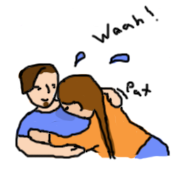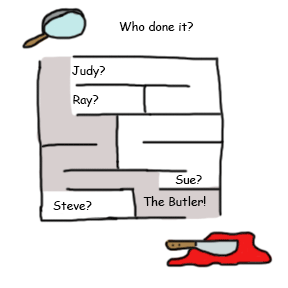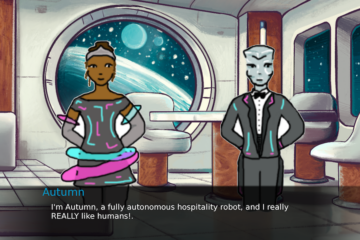Why do we need plot anyway, the stupid thing!? Why does it think it’s so important, instead of, say, character or really delicious scene description?
These are the question newbie-me asked many times, when I was so good at dialog and character and scenes but I just hadn’t figured out how to put a plot in my stories, and kept getting critiques from first readers that boiled down to, “It’s nice, but there’s no plot.”
I about panicked. I’d taken English Composition. I knew about Rising Action, Climax, and Denouement. I knew about beginnings and endings. Why couldn’t I PLOT?

“What about those smutty stories you’re always exchanging with your online friends?” my husband asked. “Don’t those have plots?”
“Well, yes. But… I can’t use THOSE PLOTS!”
“Why not?”
He stopped me cold. Brian’s great that way.
Smut plots were easy to write, because I knew what I wanted them to be, and I just did it. I wanted certain things to happen, they required certain build-ups, and had a certain obvious conclusion. I’d mistaken subject matter and plot, as though they could not be separated.
And I’d been writing plots for a long time. I hadn’t noticed because these plots were easy, and I assumed plot had to be difficult. Moreover, I was mistaking what plot WAS.
Plot is, essentially, the orderly build up and release of tension. Plot is when a jazz musician resolves a discord down to a chord. Plot is expectation met.
In praise of the predictable! Think about it: you know you are getting a gift. You see the box wrapped in your loved one’s arms. You might even know what the gift is. The wrapping paper and the presentation of the gift are all rising action toward the climax of you unwrapping that present and the resolution of happiness or disappointment when you see what you got. This is all totally predictable… but in the moment it is exciting, interesting, and you wouldn’t stop halfway through unless you wanted to prolong the enjoyment.
Life is full of predictable plots. They reassure us and comfort us.
See… part of what made me, I think, unable to plot as a new writer was the mistaken belief that I had to always do something “new.” This was fueled by every film or tv show or book review from a friend that said, “I didn’t like it. I knew from page 40 how it was going to end!”
There are genres of writing that specialize in playing elaborate games with the reader to keep them from guessing the end, but you DON’T HAVE TO WRITE THAT.

Recently, I was going through old files and re-read this story I’d written back in, like, 2003. It had been called “plotless.” I knew it was plotless. I felt it was beautiful, though, without a plot. Why couldn’t people accept my beautiful, plotless story?
I was sure “inserting” a plot would ruin what was there. (I imagined a plot insertion as ‘dumb actiony thing happens, then other dumb actiony thing happens.’ Like you couldn’t have “plot” without explosions?) So after a healthy handful of rejections, I left the story in my “Garbage” folder, forever to moulder.
Well, that was old-me. New-me read this story and said, “La, you silly thing. You have a plot, you just buried it.” I took out a number of paragraphs, things that took you off the main trunk of the story, things that were interesting, but didn’t add to the tension.
No, we didn’t need to know about her boyfriend who isn’t in the story. We didn’t need to know about her furnishings or the layout of the street. Details that were there because I thought of them. Now I know you put in details like that only when they advance theme or build suspense.
As the story was written, it had a start: A person in a place with a problem, who acts on it, making it worse. Classic! Then I introduced another character who complicated things. Then I… resolved that complication. Then I introduced another character who complicated things and resolved that, too.
The solution was laughably simple. I cut those two scenes in half. I moved the resolutions to the end of the story. So now it was Complication, Complication, Resolve-resolve, instead of complication, resolve, complication, resolve. All the elements were there, I just had to show them to the reader in the right order.
Plot can hide from you, disguised as character development and scenes. Everything can be plot. Without adding a single “action” to the story, I went from plotless to plotted.
I digress. So, why is a plot, even a simple, predictable one, necessary for a story? Why do songs need intros and outtros? Some don’t, but most do. Why?
Because it’s satisfying. I realized that when I complained a story ‘had no plot’ really what I was complaining was “this story is unsatisfying.” My “plotless” story pleased me, but I hadn’t been looking at it as a whole. It pleased me in the way eating a piece of lunchmeat and a piece of cheese, standing in the open fridge door, pleases. By giving it structure, I made a sandwich and the extra work gave me a more satisfying meal.
You gotta satisfy people, in some way. Either by making them entertained or making them think, or Gort help me, a bit of both.


